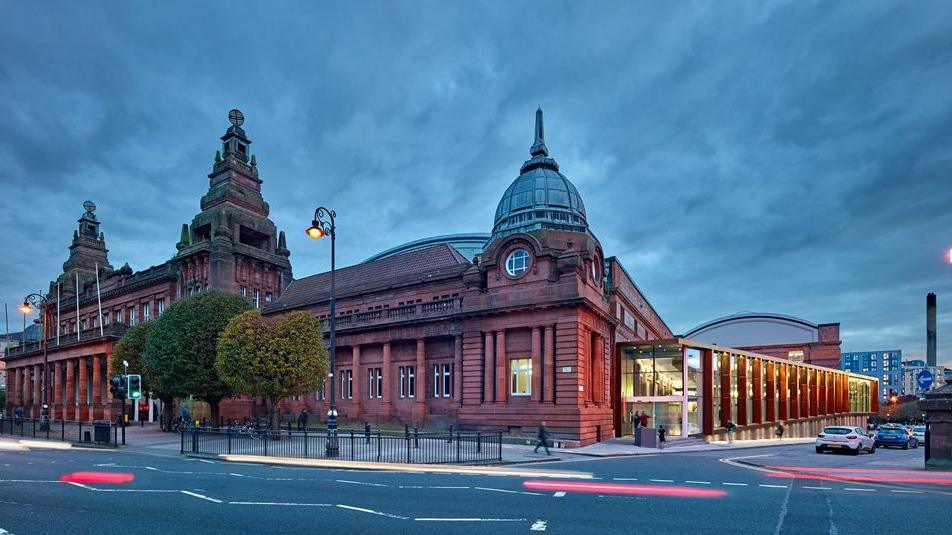Solar panels provide a lifeline for squash club
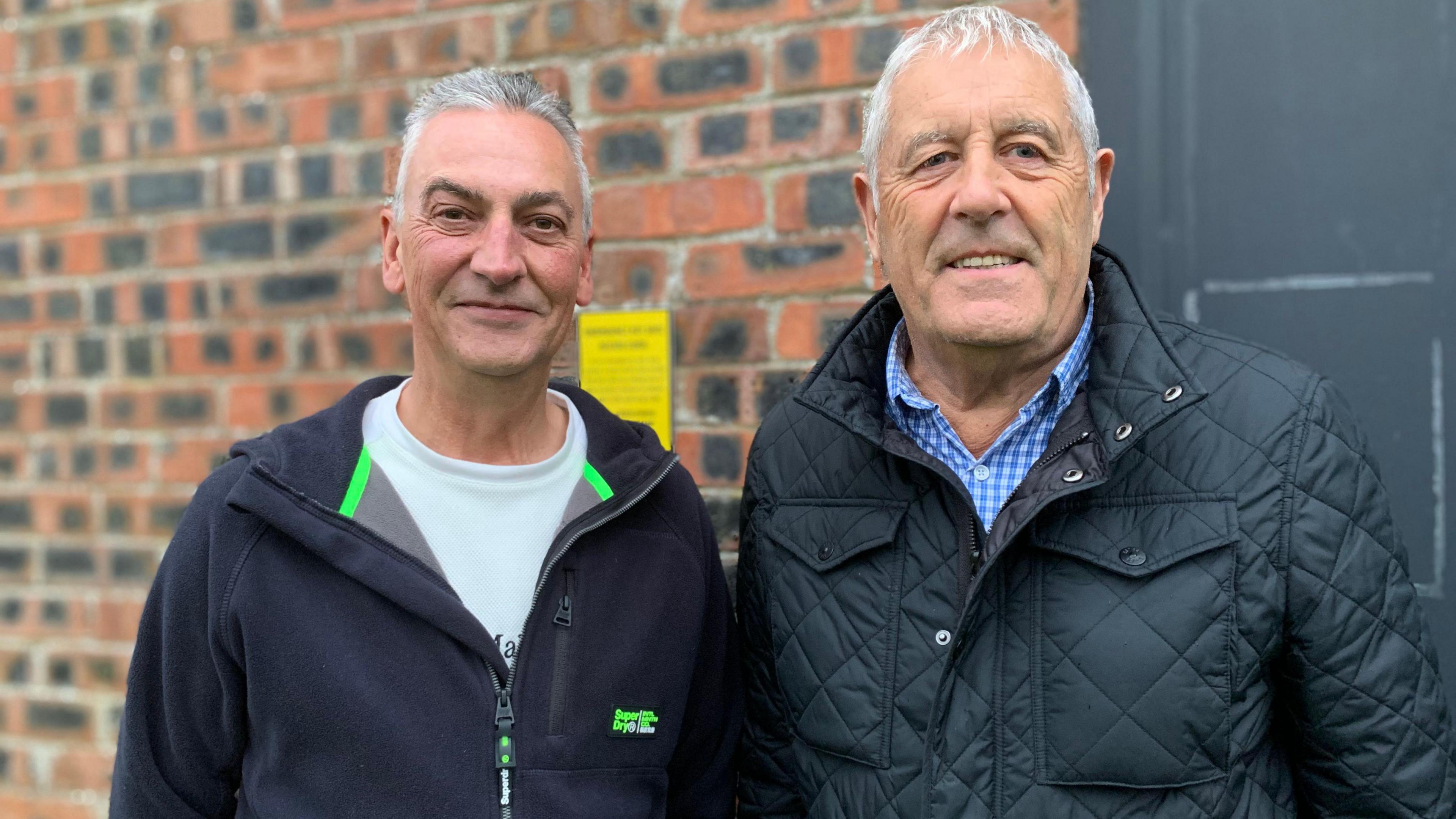
Sean Crolla, left, and Harry Earl said the new panels were a "game changer" for Lockerbie Squash Club
- Published
Lockerbie Squash and Racketball Club will be 50 years old this year.
However, its future has been at risk due to high energy costs for its premises on the outskirts of the town.
Now it hopes the installation of solar panels - which have recently been approved - can ensure its financial future is a bit brighter.
It has been something of a race against time to get them fitted in order to access the funds pledged to the project.
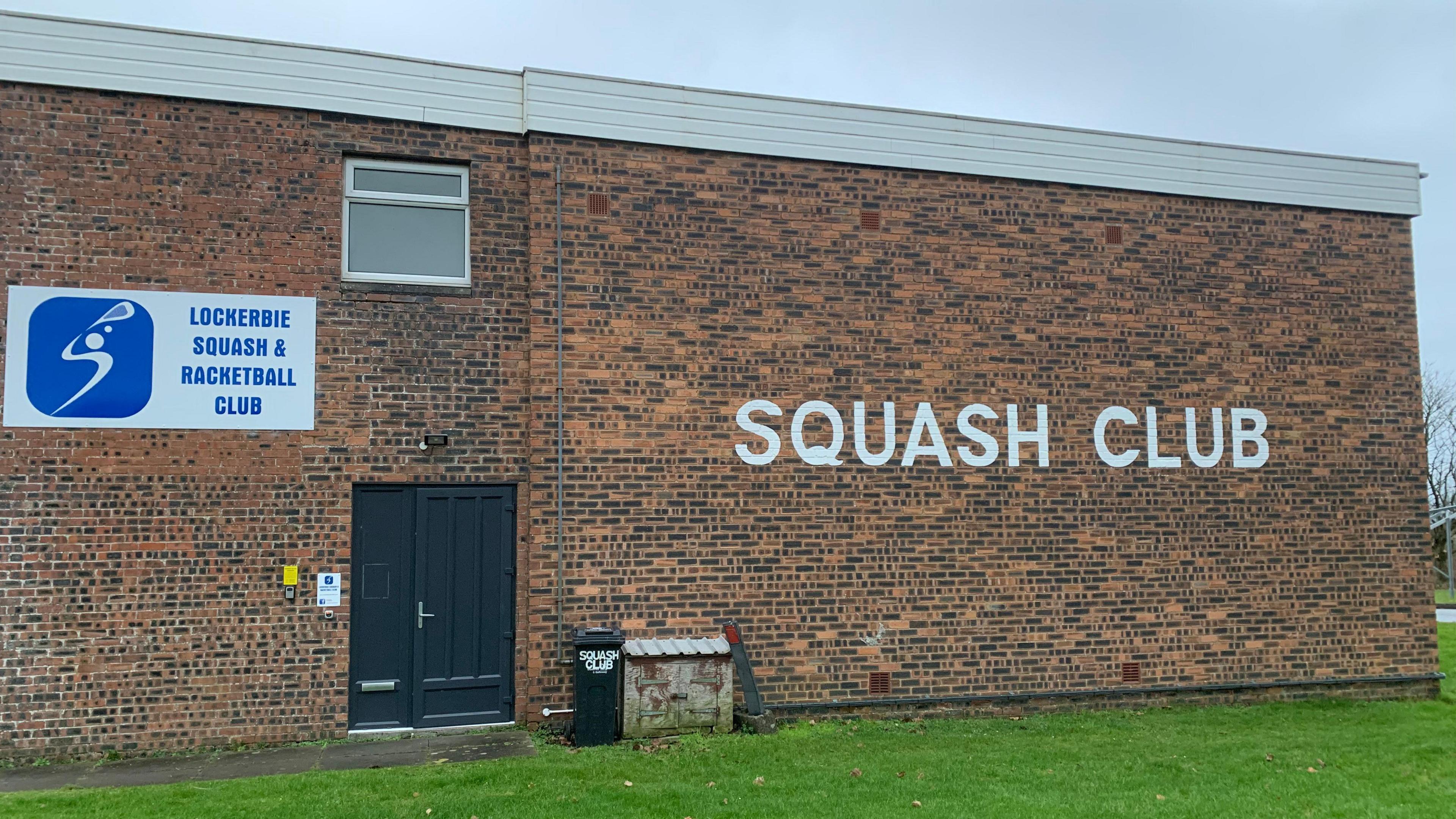
The facility faced an uncertain future as its energy bills reached up to £400-a-month
Trustee and treasurer Harry Earl said that at one stage they were paying up to £400-a-month for their energy costs, which would have been hard to sustain.
The club was successful in obtaining the ground it sits on and a parcel of land beside it through a community asset transfer in 2022.
It was then that plans for the solar panels to become a net zero organisation were hatched.
Harry said that although they would not bring energy costs down to zero, the project would undoubtedly put them on a more sound financial footing.
"The solar panels will give us a feed-in tariff which will see us through the winter," he said.
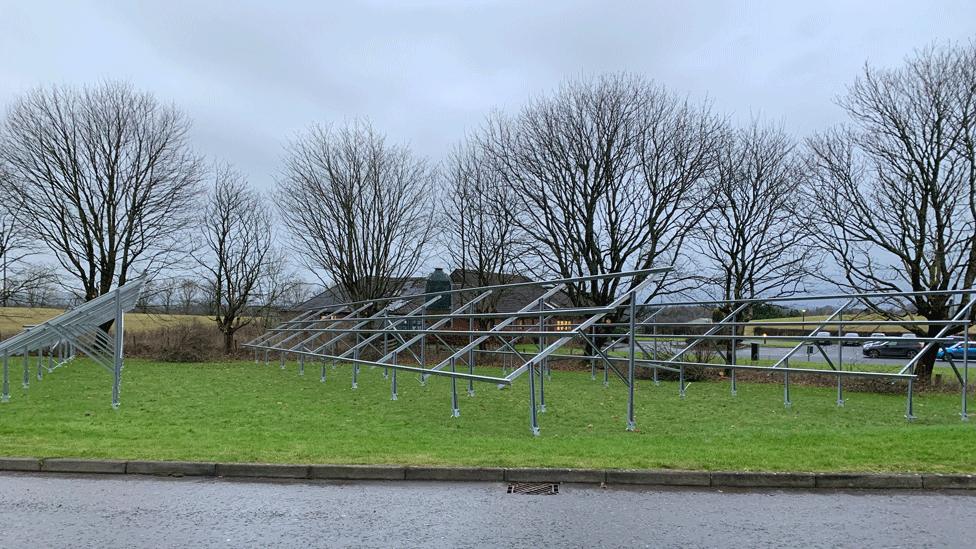
The panels are being put up on land close to the club
He said that would benefit the club and its members but also the wider community as they would be able to offer open days and potentially free memberships.
"It was getting to the stage where another year would have been difficult," he admitted.
"The solar panels will guarantee the club's future for sure and keep the club here for a good number of years ahead.
"It has been here 50 years and it has been well used by the school - they use it on a regular basis."
They currently have about 80 members but vice chairman Sean Crolla said they hoped to see it "booming" again like it did in the past.
"It goes well, but obviously you just want more members to bring it back to what it used to be," he said.
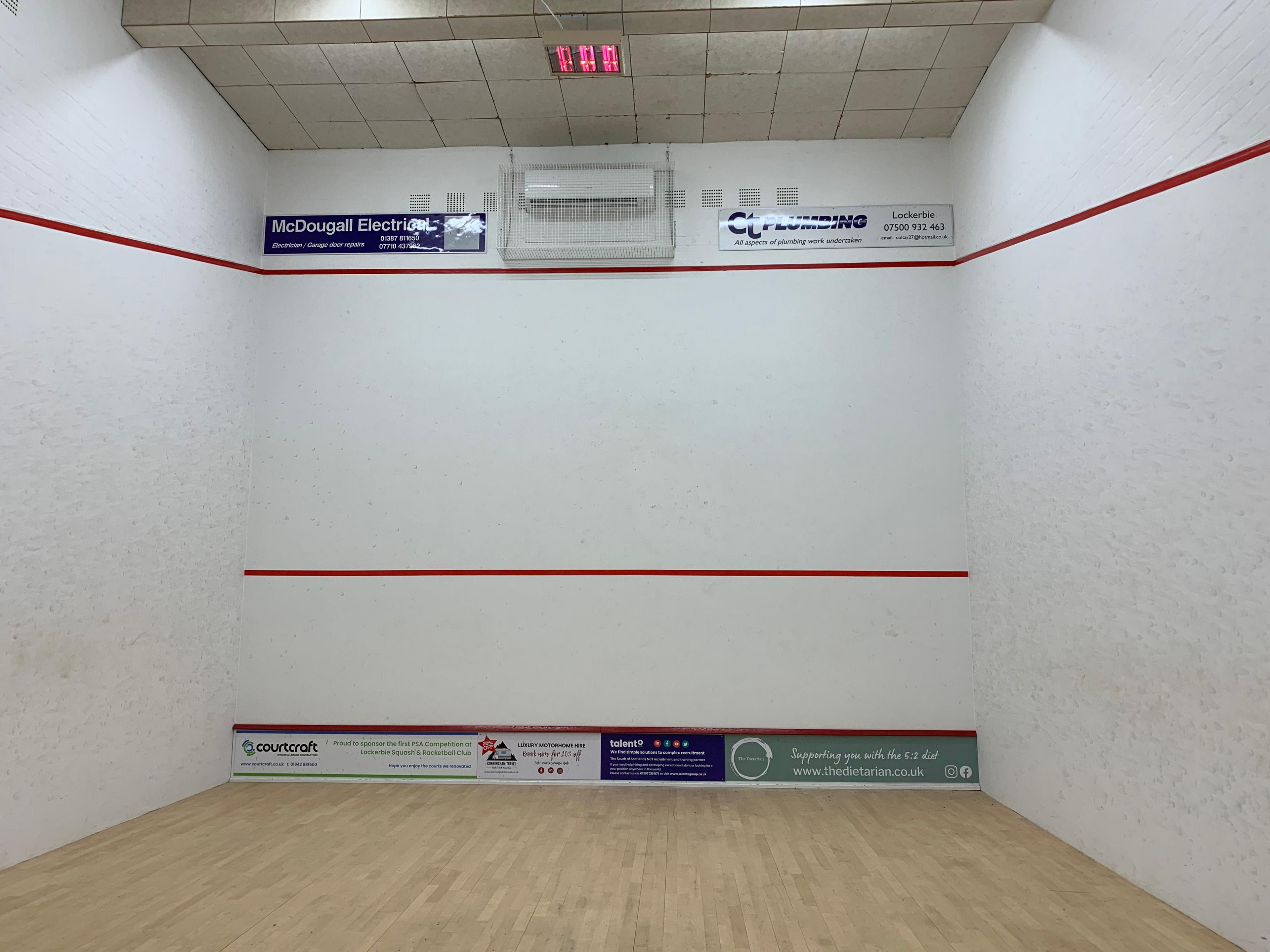
The club hopes it can attract more members once its overheads have been reduced
The panels should be up and running by the end of January and give the group a brighter future.
"It's a big thing being a net zero club," said Harry.
"There's not many places can say they are net zero so that's a big thing in itself - guaranteeing the future of the club and no greenhouse gases."
He said there had been a "real risk" that they might not have been able to carry on.
"Energy prices were going up and up and up and were never coming down," he said.
"We fixed the heating and we were still paying £300 to £400 a month.
"The only way out was through the solar panels which has given us the energy we needed plus a feed-in tariff which will be the big help."
It should help to tide them through the winter months.
"We won't be paying nothing - but it will be a lot, lot less," said Harry.
"It has been a game changer for the club without a shadow of a doubt - without it we would have been in serious difficulty trying to balance the books."
Related topics
- Published12 December 2024
